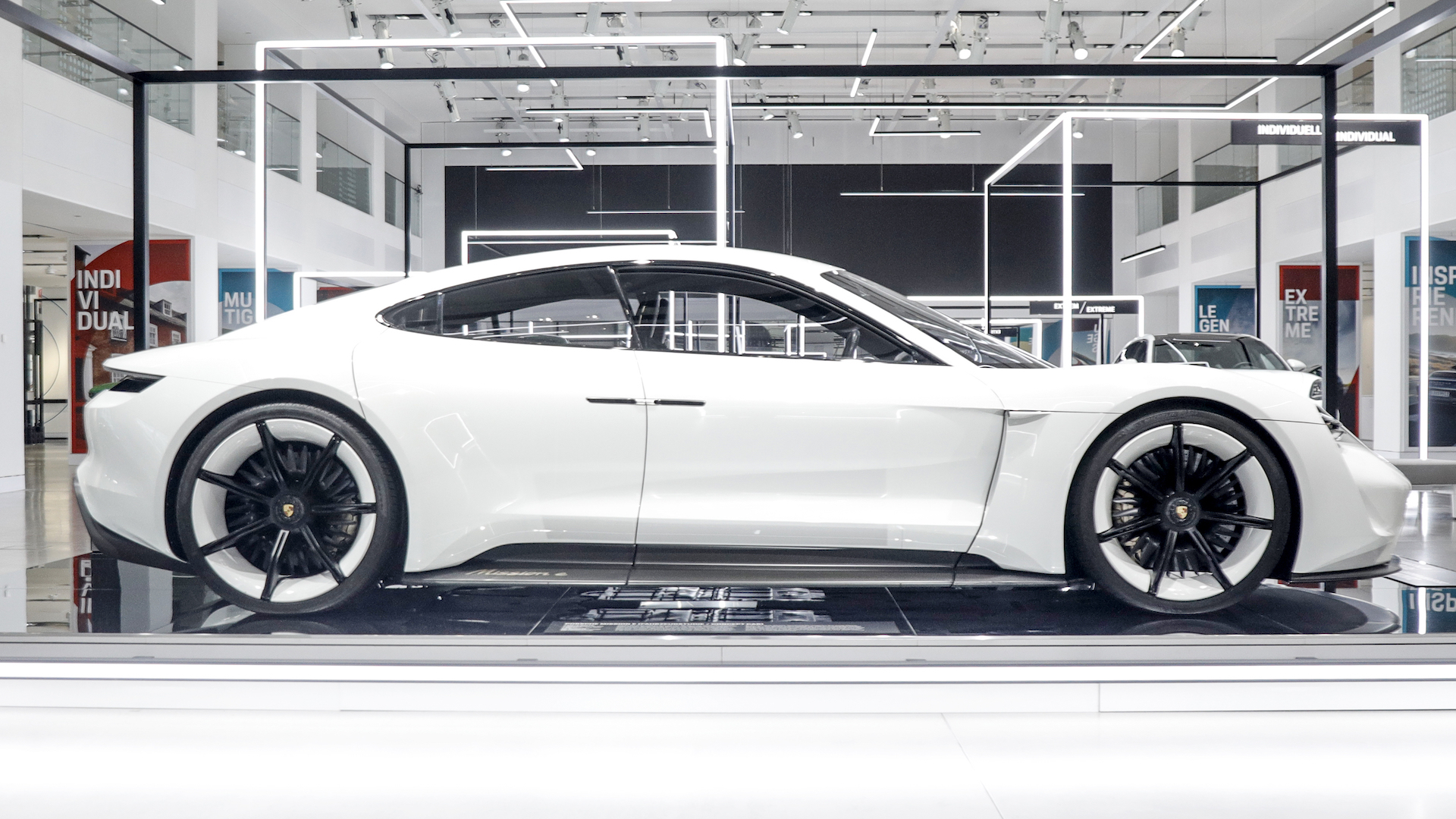

Porsche is preparing for the arrival of its first all-electric production car, the Taycan. The German automaker is modifying its Zuffenhausen factory to handle production of the electric four-door, but once Taycans begin rolling off the assembly line, they’ll need a place to charge. As a result, Porsche is preparing a few different options for Taycan drivers.
One of the standout features of the Taycan is an 800-volt electrical system that should enable super fast charging, but that won’t do much good without powerful charging stations that can dish out lots of electricity. Porsche will rely on two existing charging network programs to ensure those stations get built.
In Europe, Porsche is teaming up with BMW, Daimler, and Ford on Ionity, a joint venture to install 400 DC fast-charging stations across the continent by 2019. These stations will be able to charge at up to 350 kilowatts, making them substantially more powerful than the average DC fast-charging station today. Porsche previously said this could charge cars using its 800-volt system to 80 percent capacity in just 15 minutes.
As for the United States, Porsche will use the Electrify America network, which will also include some 350-kW DC fast-charging stations. Those stations will be installed at 300 locations along U.S. highways by 2019, a Porsche press release said. Electrify America was created to spend money that Porsche’s parent company Volkswagen had to commit to zero-emission vehicle infrastructure as part of its diesel-emissions cheating settlement.
In addition to DC fast-charging stations, Porsche said it will install 2,000 AC stations in 20 global markets. These stations can’t charge as fast as DC stations, but Porsche plans to put them near places where drivers spend a lot of time, such as hotels. This is similar to the approach taken by Tesla, which has installed AC “destination charging” stations at hotels and parking garages to augment its network of Supercharger DC fast-charging stations.
Finally, Porsche plans to offer a Mobile Charger Connect unit that can charge a Taycan at up to 22 kW. This should allow for a full recharge overnight, according to Porsche. The automaker said the Taycan will also be equipped for wireless inductive charging. All of these efforts will lay the groundwork not only for the Taycan’s launch in late 2019 but for future electric Porsches. About 50 percent of Porsches will have hybrid or all-electric powertrains by 2025, according to Lutz Meschke, deputy chairman of Porsche’s executive board.